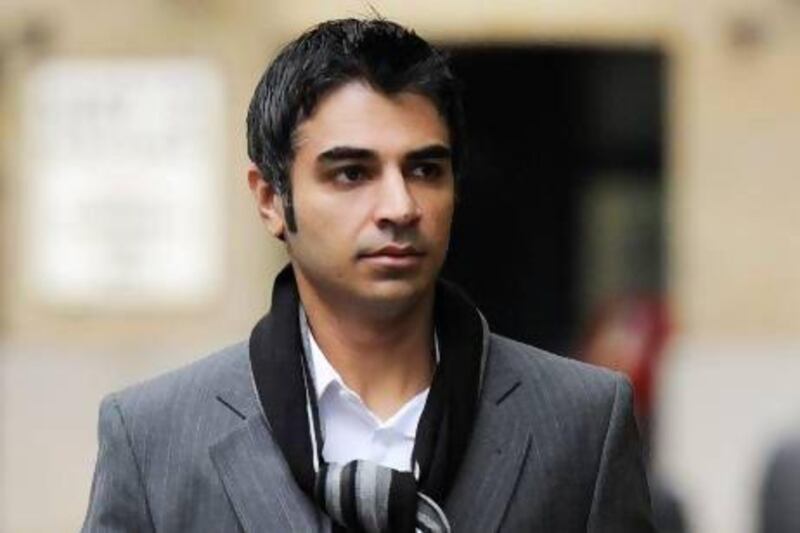When should a man admit he has done wrong and stop fighting? At the first time he is found guilty? The second time, when his appeal has failed? The third time? Do we ever run out of places where he can take his case? If we do, and it is confirmed repeatedly that he has wronged and that the processes to find him guilty were fair and correct, then after all that, should he be made to publicly accept his wrong?
Over the last 10 days or so two unrelated cases of corruption involving three Pakistani cricketers came to be heard. Accept it as one those strange quirks life so gleefully doles out that the various appeals of Salman Butt and Mohammad Asif, in one case, and Danish Kaneria in another occurred in such chronological vicinity in Lausanne and London.
There was nothing quirky about their appeals being dismissed, reaffirming yet again, in the eyes of almost everyone, that they are guilty, guilty and still guilty. Was there any point to this, given all three had been found guilty at least once before?
In Butt's case it should be pointed out that he was not contesting the verdicts an independent cricket tribunal and then a London court handed out to him at the Court of Arbitration Sports (CAS) in Lausanne. He was merely fighting the degree of sanction -the 10-year ban with five years suspended - that the tribunal gave him, under the code of the International Cricket Council (ICC).
That stance in itself is about as much an acknowledgment as Butt will make of his role in the corruption. His lawyer in England had admitted his guilt at an appeals hearing after he was found guilty and sentenced in November 2011, and Butt himself admitted to his role in front of a CAS panel, but he has never publicly accepted it.
In fact, publicly, he has been a ferocious denier of it, calling on all manner of conspiracies and weak excuses. After losing the appeal, in Lausanne, at a press conference in Lahore he refused to go into questions of his guilt, stating only that his stance remained the same as it did on Day 1 of the case; presumably, that he is innocent.
Does he need to say publicly that he was involved? It is his right, of course, to continue proclaiming innocence. But if he is to return to the game by September 2015 (when the first five years of his ban finishes) as he insists he wants to, a public acknowledgment will have to be made.
That was the gist of the unusually strong statement issued by the ICC a few days after the Lausanne verdict was announced (and is a clause in the ICC code on anti-corruption). "The guilt of these men has now been established on three separate occasions, in three separate sets of proceedings, and in three separate forums," the ICC chief executive Dave Richardson said.
"The time has now come for them to stop misleading the members of the public, especially the supporters of the Pakistan cricket team, and to publicly accept their parts in this corrupt conspiracy."
That statement was not a simple matter of process. It was prompted in equal parts by vindication and frustration; the former at having its own legal process cleared by the ultimate court in sports, the CAS. This case was, remember, the first of its kind for the ICC, in which they collected evidence, built a case, fought it and won it. The frustration was at the persistence with which Butt and Asif claimed to have been wronged by the ICC.
The statement was both warning and olive branch to Butt and Asif. Already there are indications that Butt may be open to the kind of rehab with the Pakistan Cricket Board that the original punishment mandates. Maybe, like Mohammad Amir, he will even cooperate with the ICC further. So grave is his future that only after this can he begin to combat the physical difficulties of a five-year absence from the top levels of sport.
Asif and Kaneria? Neither have come close to admitting anything and Asif's lawyers have said they may take the option of going further still, by appealing now to the Swiss Federal Court. A non-legal opinion is that Asif may have better luck drawing milk from a stone. Or, as speculation has it, on Big Boss, the Indian version of celebrity Big Brother.
Kaneria's future is even less bright. His appeal was against the life ban the England and Wales Cricket Board imposed on him and one that must be applied across all ICC member countries. He now may take another appeal to the High Court in London and can only hope, at best, to reduce the sanction.
It is unlikely any of the three will play top-flight cricket again. But they have full lives to live and to do so with any peace, forget full public admissions, they may be better served by first making an admission to themselves.
Follow us
[ @SprtNationalUAE ]





